
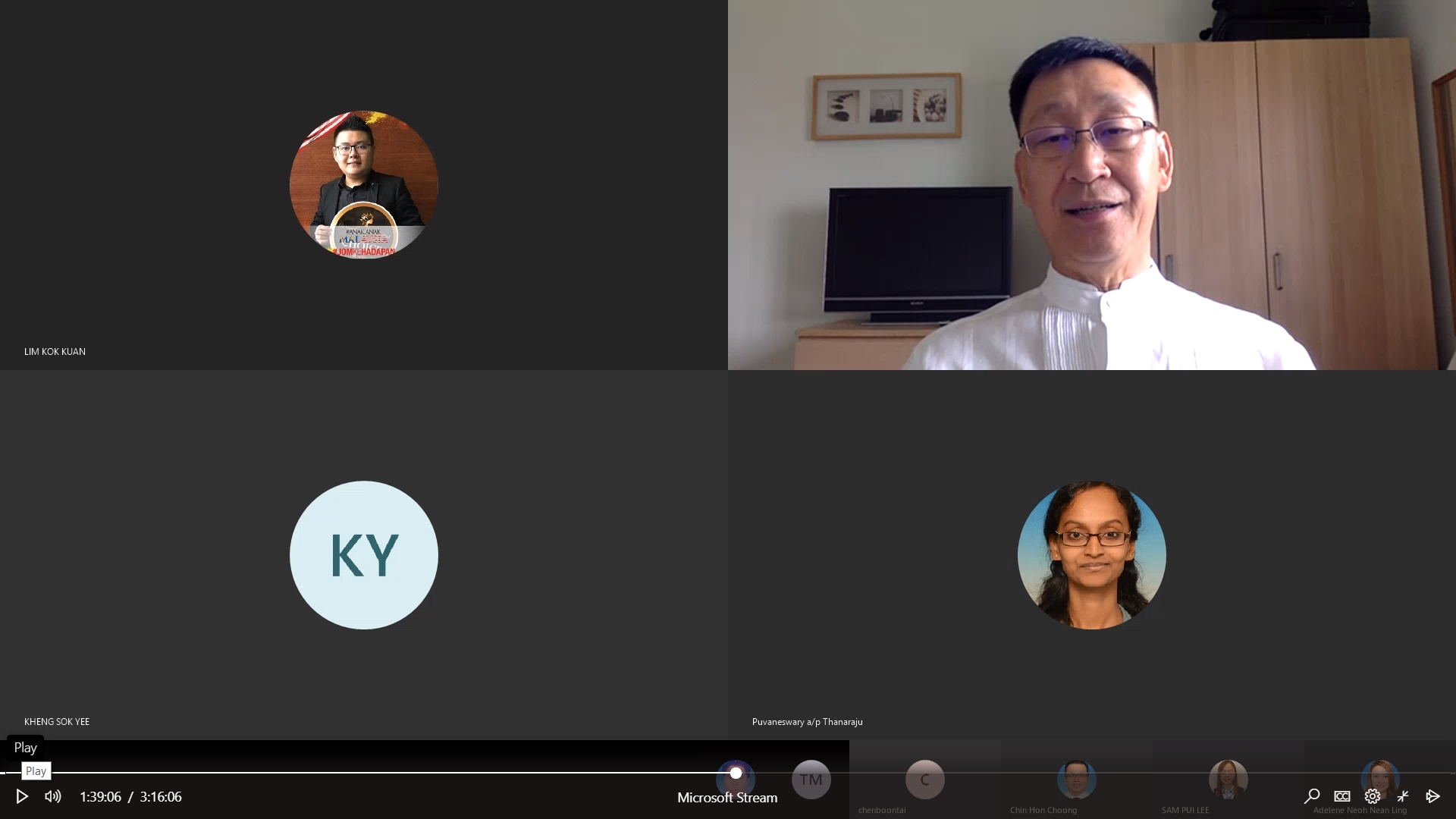
Dato Charlie during
the webinar
UTAR Faculty of Accountancy and
Management (FAM) and Master of Real Estate Development (MRED) organised a
webinar titled “Product Development Part 1” via Microsoft Teams on 28 June
2020.
The webinar
gave the audience a better insight into the real estate development.
Speaking at the webinar was Secretary of Real Estate & Housing Developers'
Association (REHDA) Malaysia Wilayah Persekutuan 2019 – 2020-cum-REHDA
National Council Member 2019 – 2020 Datuk Charlie Chia Lui Meng, while
moderating the webinar was FAM lecturer Dr Puvaneswary
Thanaraju.
Datuk Charlie
Chia welcomed the participants and said, “Let me begin by saying that I am
happy to be given this opportunity to participate in this sharing. This
sharing was a joint venture between UTAR and REHDA.
I was asked by the council of REHDA
to look into the possibility of developing a programme for UTAR. Currently,
REHDA is collaborating with UTAR for a master’s degree programme, namely
Master of Real Estate Development (MRED).”
Datuk Charlie
Chia’s talk was divided into three parts; green
building and green technologies, supply and demand and market trend
and affordable housing. He started his topic “Green Building” by explaining
how people these days wish to live in a green, natural environment as well
as energy-saving environment. According to him, all these points are on the
top of the agenda for many new policies in real estate development. “Green
building’s design, construction and operation mainly focus on reducing or
eliminating negative impacts and creating positive impacts on our climate
and environment. Green building preserves precious natural resources and
improves our quality of life,” said Datuk Charlie Chia.
Datuk Charlie Chia then talked about “Green Building Index (GBI)” and “How is a Township Deemed GBI-certified”. He said there are six categories to determine the GBI score. GBI is an environmental rating system for buildings which was coined by the Pertubuhan Arkitek Malaysia (PAM) and the Association of Consulting Engineering Malaysia (ACEM) to evaluate the environmental design and performance of the building. The six criteria include energy efficiency, water efficiency, indoor environment quality, sustainable site planning and management, materials and resources, and innovation. “For a township to be recognised as sustainable, it must first be developed on a balanced approached that addresses environmental, social and economic issues. It must meet its community’s diverse needs and offer a greater quality of life for its residents. The six categories to determine GBI score are climate, energy and water, ecology and environment, community planning and design, transportation and connectivity, building and resources and lastly business and innovation,” he emphasised. He also added, “The points that determine the GBI certifications are certified, silver, gold and platinum.”
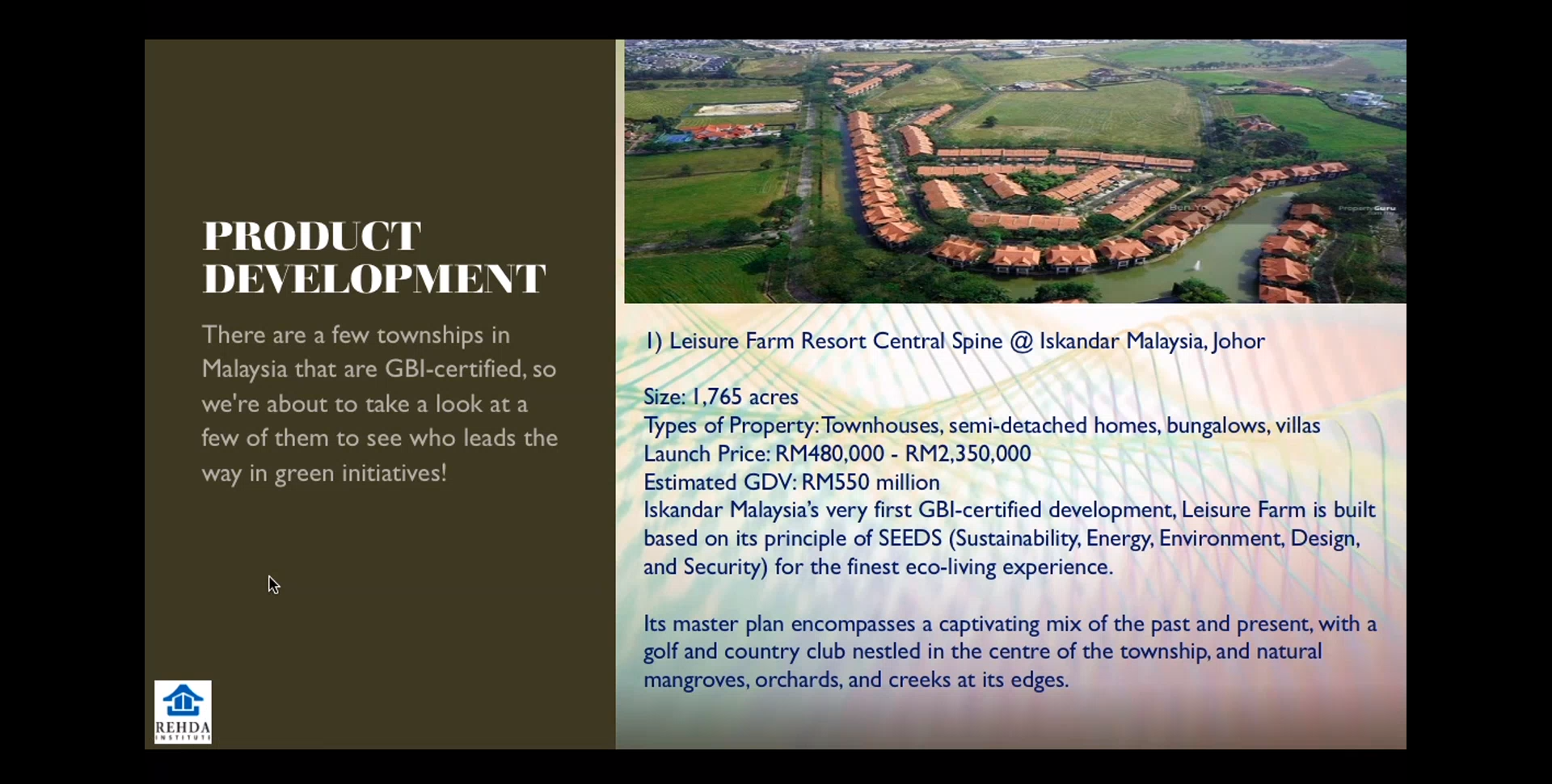
Leisure Farm Resort Central Spine at Iskandar Malaysia Johor is the very first GBI-certified development based on its principle of sustainability, energy, environment, design and security (SEEDS)
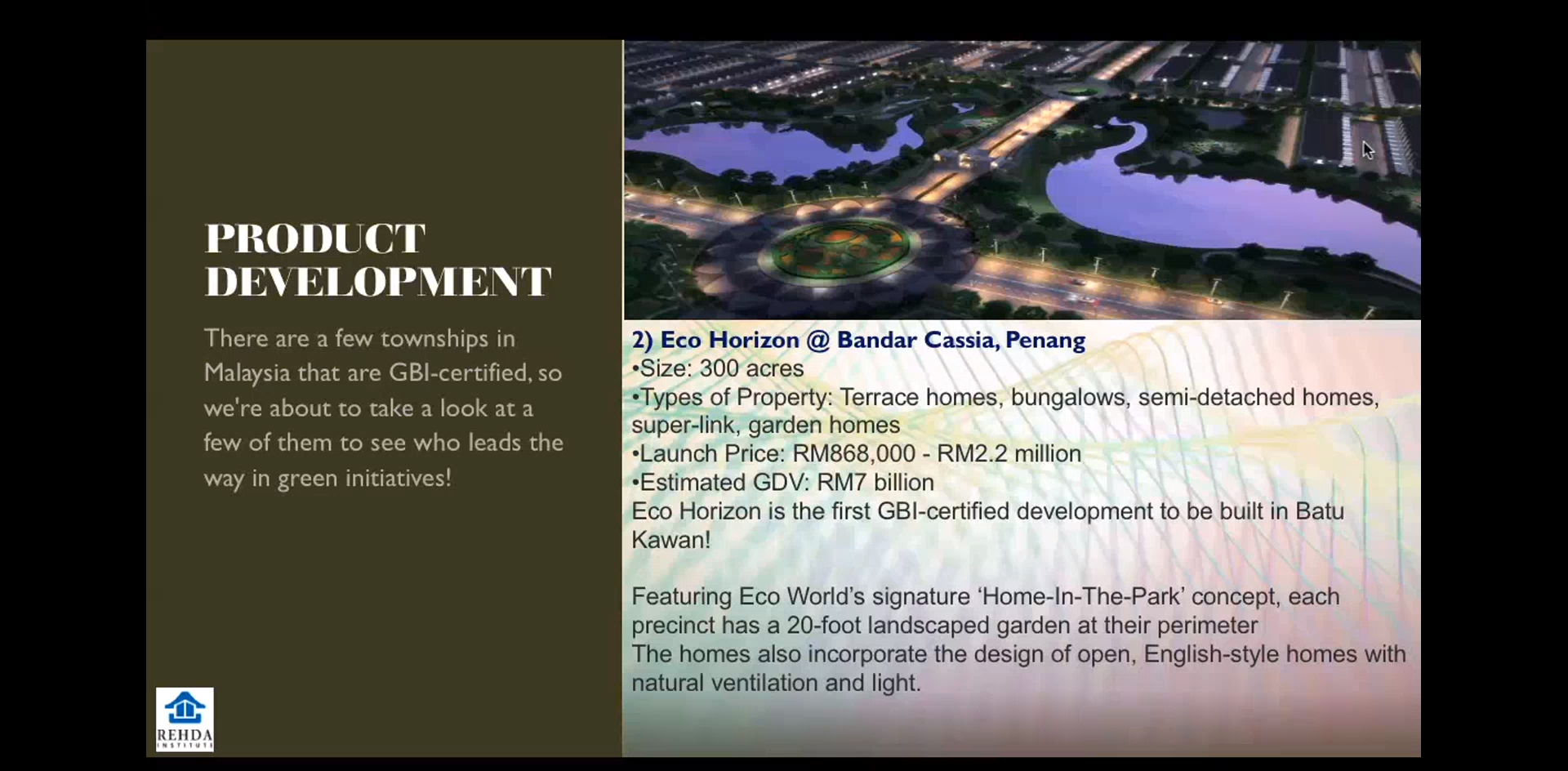
Eco Horizon at Bandar Cassia Penang is the first GBI-certified featuring “Home-In-The-Park” concept
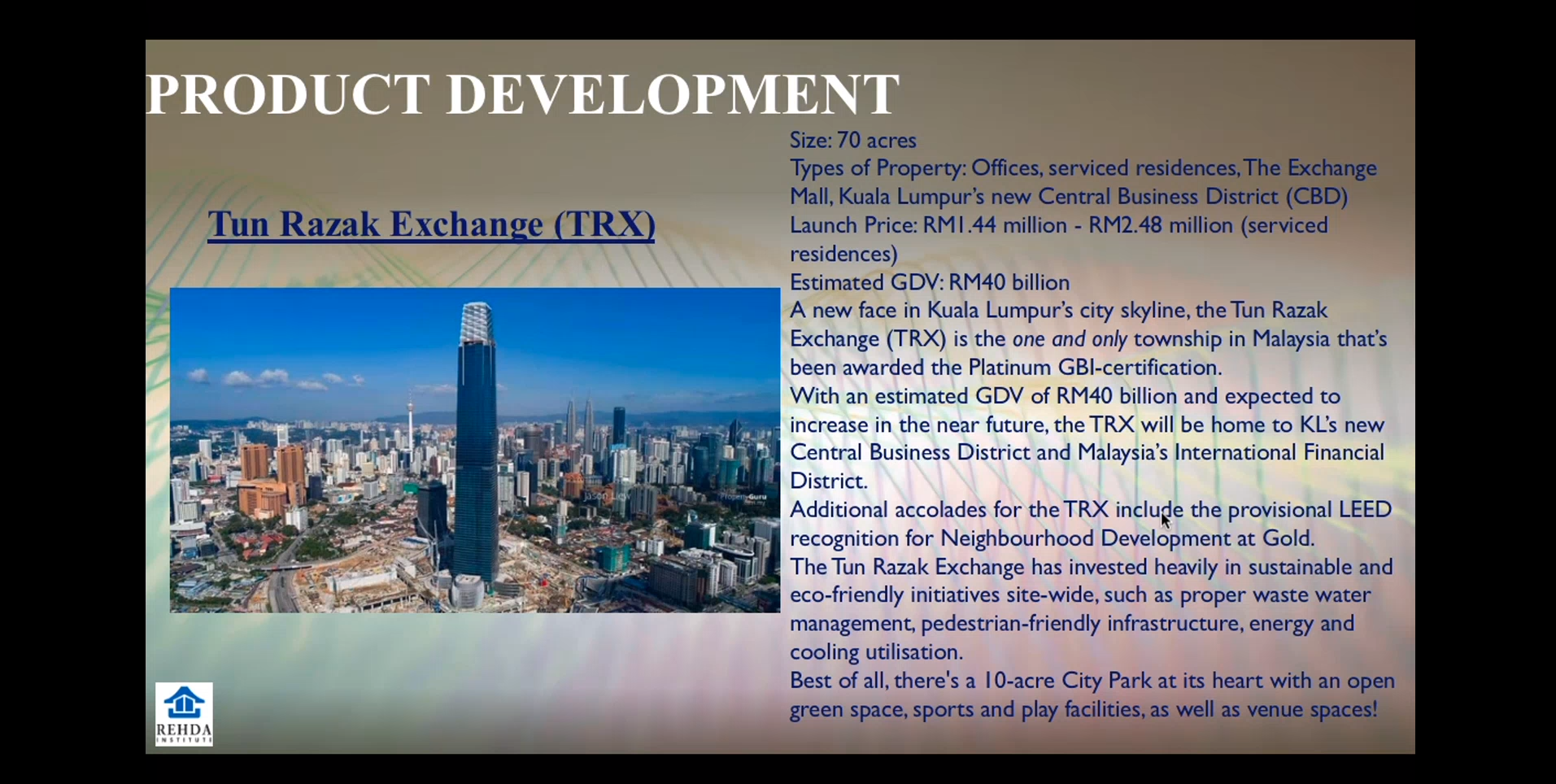
Tun Razak Exchange (TRX) was awarded the Platinum GBI-certification
Datuk Charlie
Chia then discussed the application of green technology. He explained green
technology and elucidated the reason for designing green buildings and green
initiatives. He also gave examples of various accredited agencies and green
building certification tools such as BCA Greenmark from Singapore, GBI and
GreenRe from Malaysia.
He
went on to speak about the supply and demand for property. There are six
types of real property in the market that a developer can develop. They are
agricultural, residential, commercial, industrial, mixed-use and special
use. “According to the National Property Information Centre (NAPIC), the
number of completed and unsold properties from all segments rose to RM4.5bil
as end of 2019 with close to 57,000 units sitting on the books of
developers. The unsold units are more to high-rise units,” said Datuk
Charlie Chia.
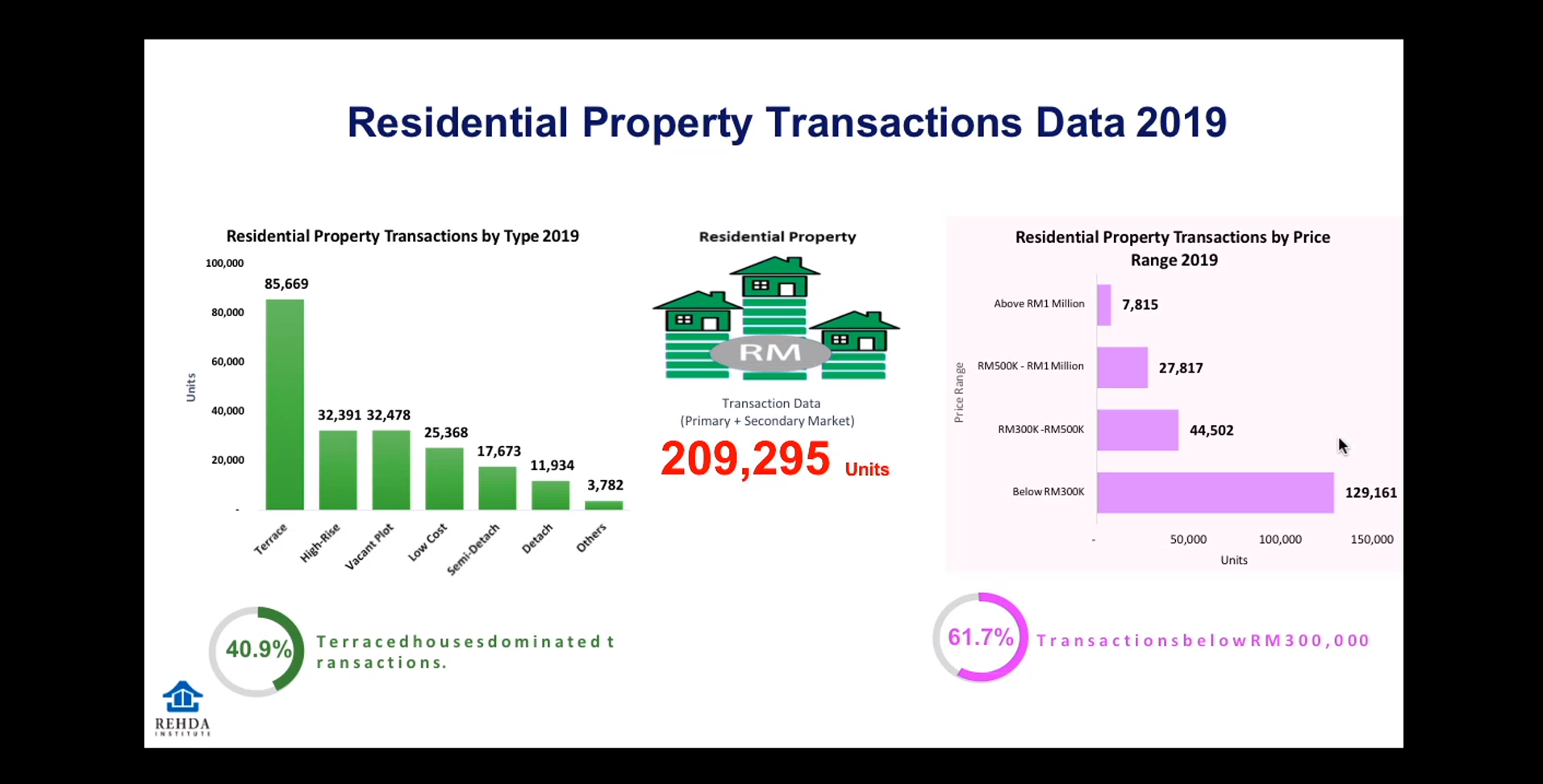
Terrace house saw the highest transaction of residential property in 2019
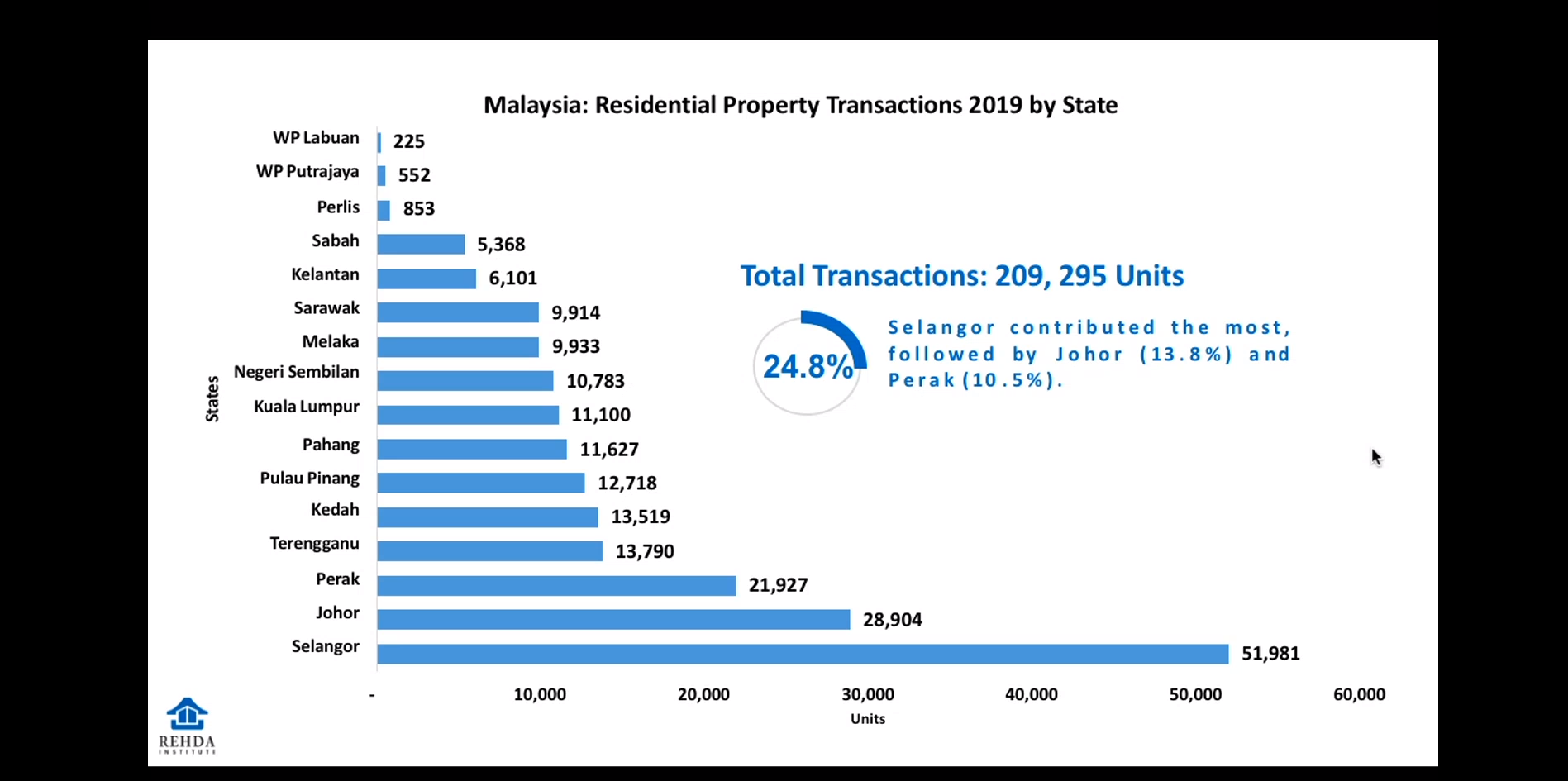
Selangor contributed the most residential property transaction in 2019
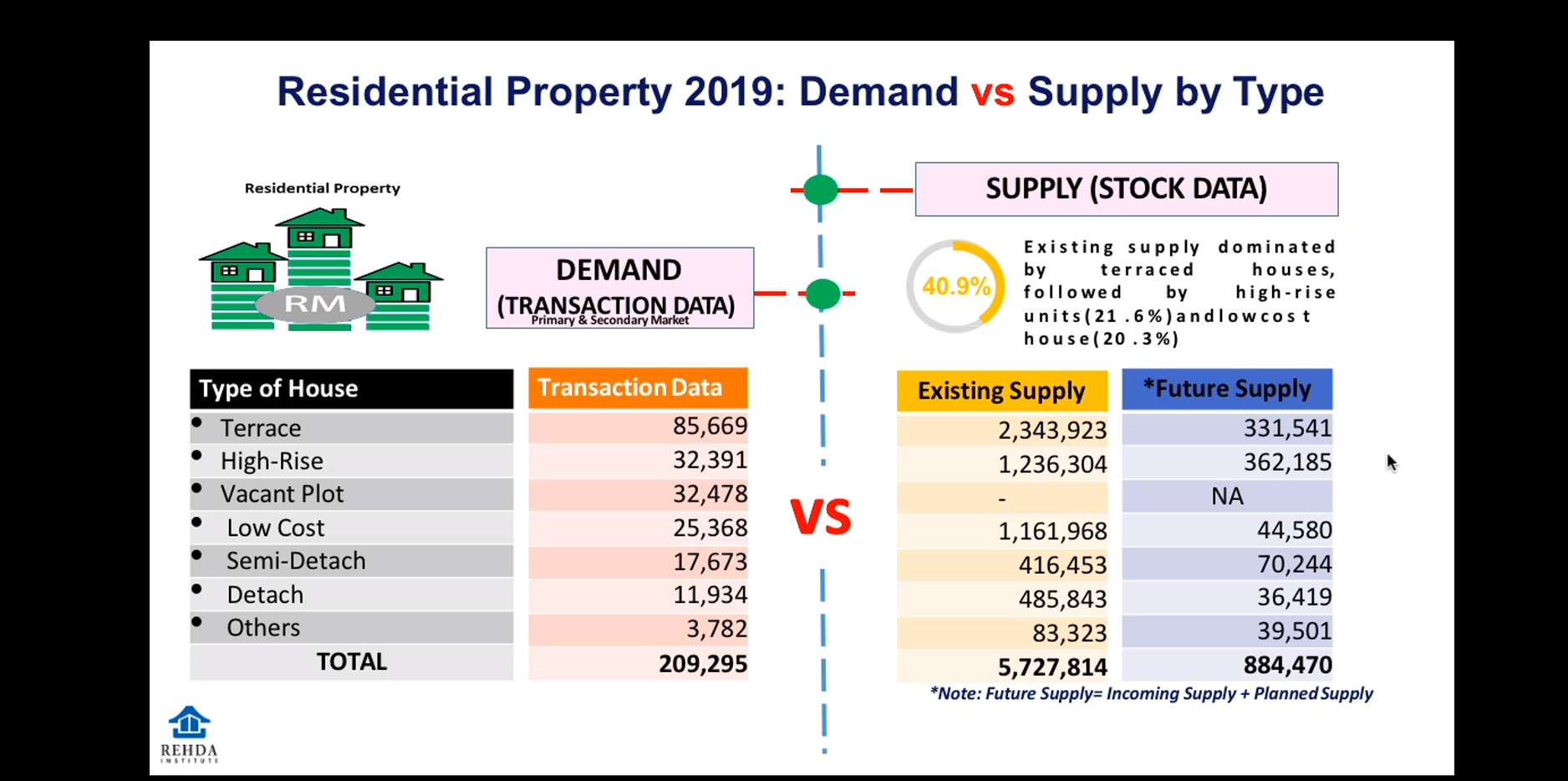
Comparison of the demand and supply for residential property in 2019
Towards the end of the session, Datuk Charlie Chia shared a survey that highlighted the demand behaviour of house buyers. The survey aimed to gauge the profiles of potential buyers, buying intention and preferences, choices of property, affordability level as well as other purchasing criteria. According to Datuk Charlie Chia, this survey is useful for searching potential buyers in the future. Speaking of affordable housing supply in Malaysia, he said, “Affordable housing is a key issue especially in developing nations where a majority of the population isn’t able to buy houses at the market price. This issue will become a consideration to the developers for product development,” he said.
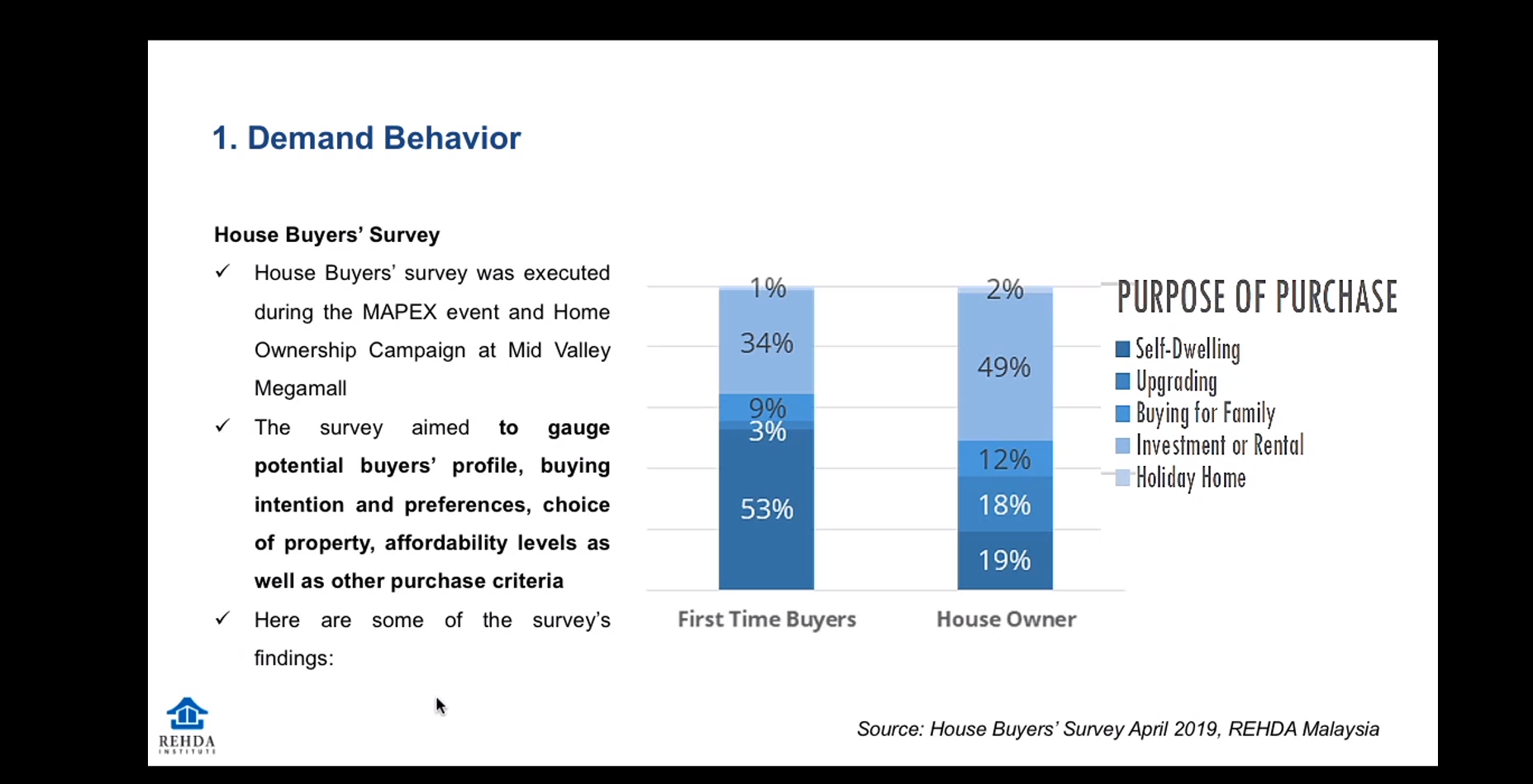
Based on the home buyers’
survey in April 2019, 53% of people bought house for their own use
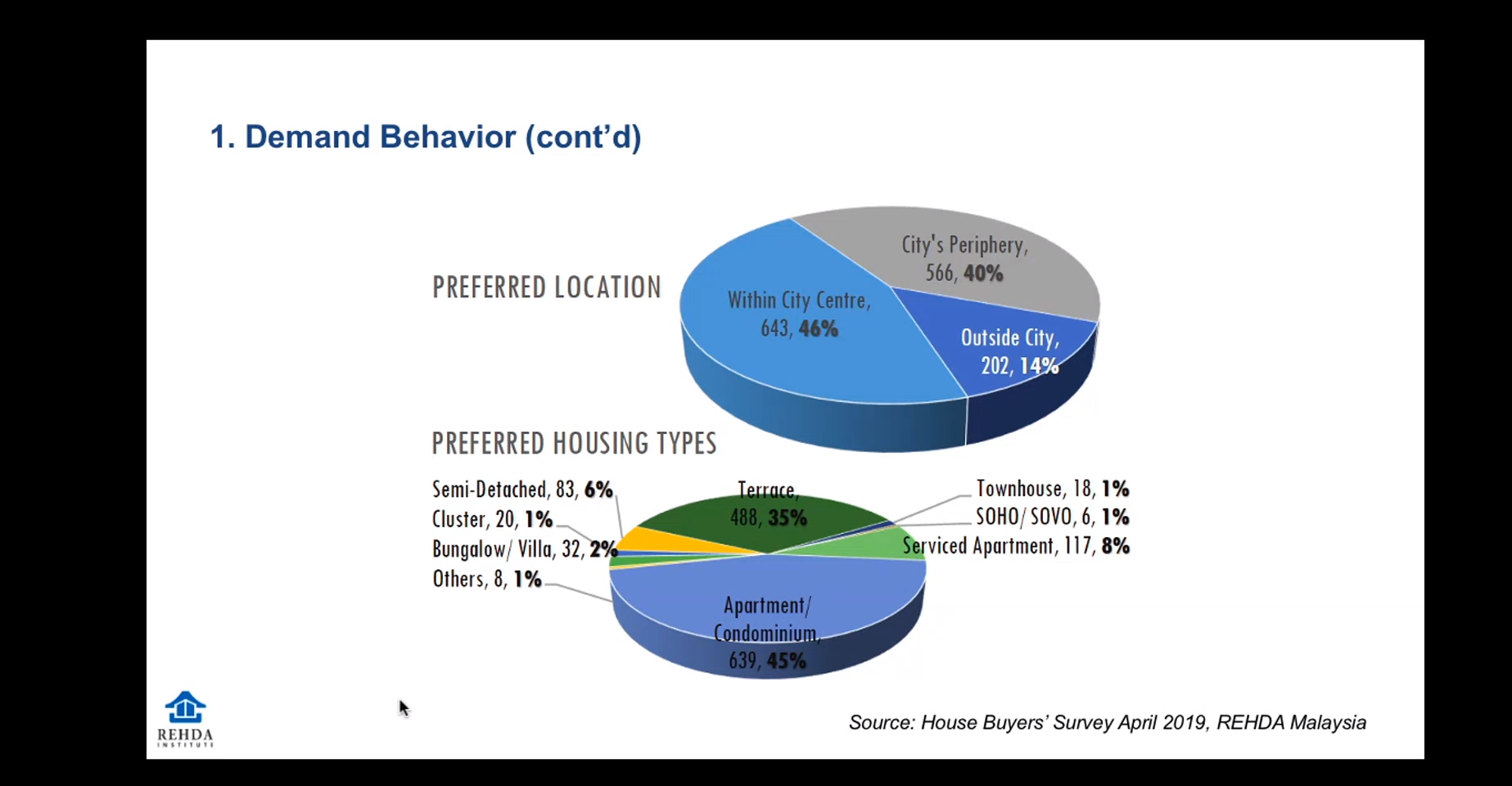
Based on the home buyers’ survey in April 2019, 46% of people preferred buying a house within the city centre and 45% of them preferred apartment
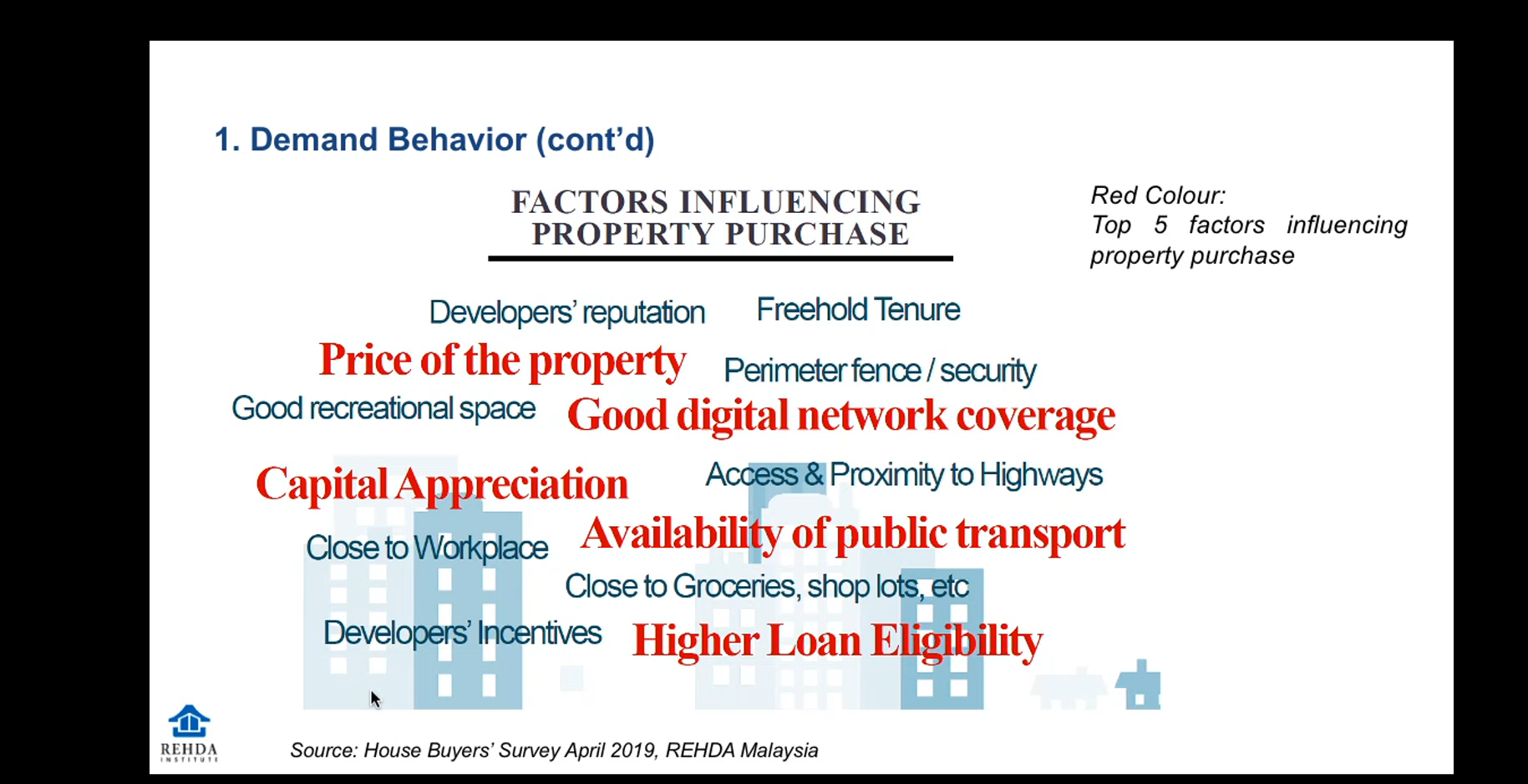
Red
colour wordings show Top 5 factors influencing property purchase

Minimalism becoming the trend now and people are only living with the things
they need
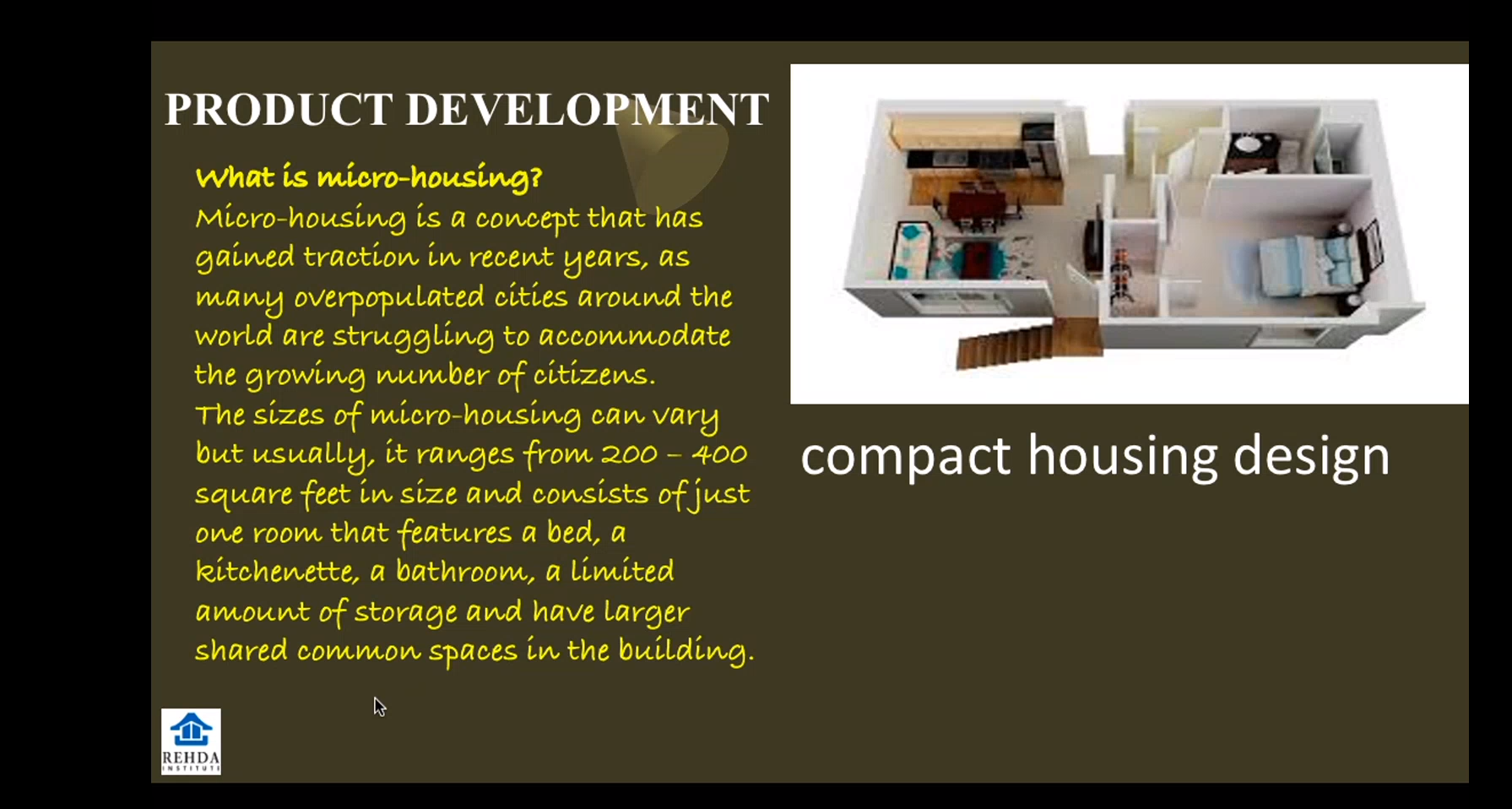
Compact
housing design is popular in the recent years
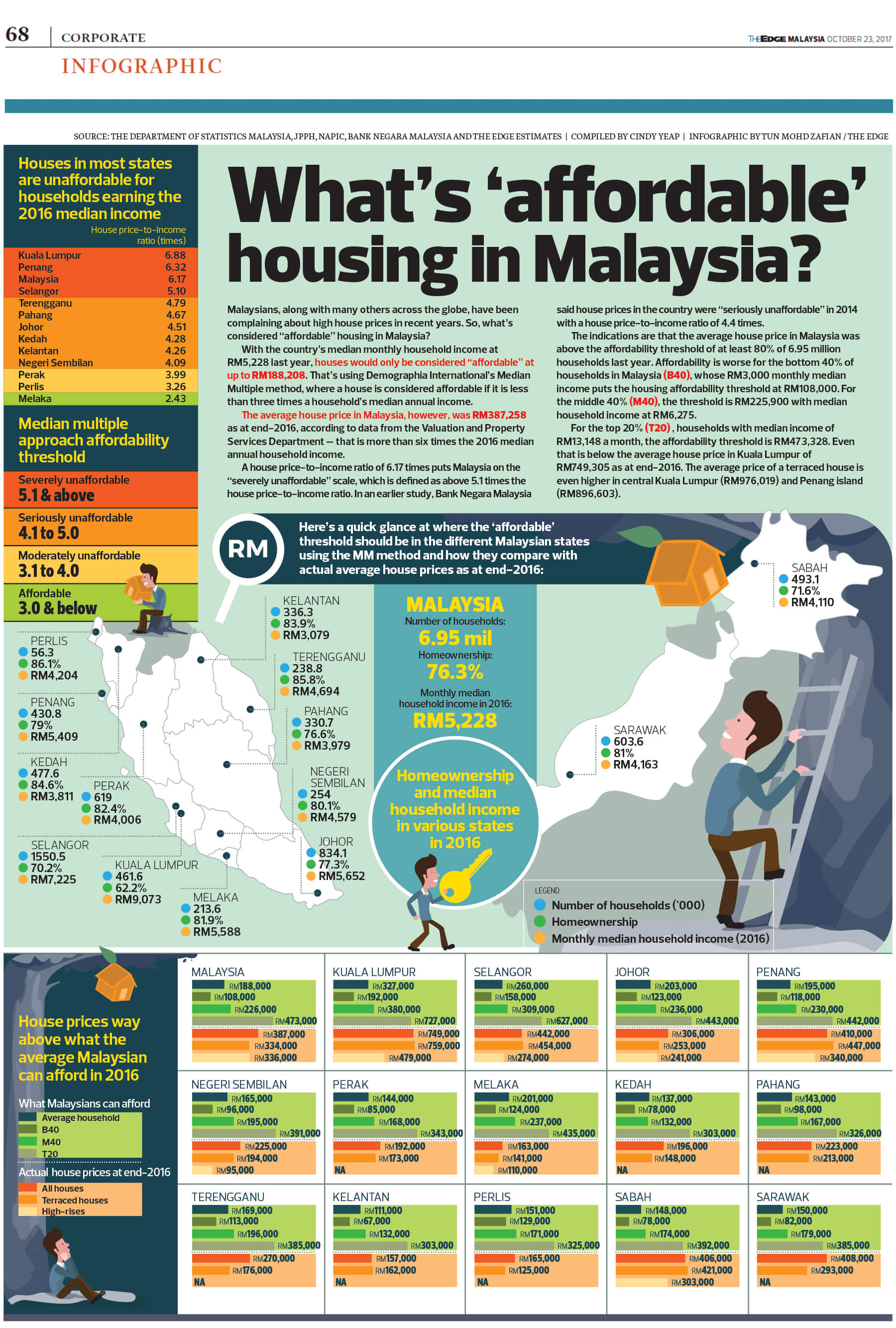
Affordable housing is a
key issue especially in developing nations where a majority of the
population isn’t able to buy houses at the market price
The webinar
adjourned after a Q&A session between the speakers and participants.
Introduction of
speaker:
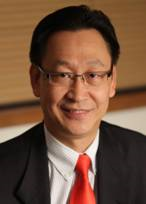
Datuk Charlie
Chia Lui Meng, age 64, is an advocate and solicitor of the Malaysian Bar. He
graduated as a Chartered Quantity Surveyor with a Bachelor of Quantity
Surveying (Hons) from University of Technology Malaysia. He is a fellow of
the Royal Institution of Surveyors Malaysia and a Member of the Royal
Institution of Chartered Surveyors and the Society of Construction Law,
Malaysia. He holds a Bachelor of Law (Hons) degree from University of London
and has completed the Certificate of Legal Practice awarded by the Legal
Profession Qualifying Board of Malaysia.
He is currently the Secretary of
REHDA Wilayah Persekutuan 2019 – 2020 and REHDA National Council Member 2019
- 2020. In his 39 years of experience in the property development and
construction industry, he has worked in both the public and private sectors.
He was attached with Jabatan Kerja Raya from 1978 until 1995 as a Senior
Quantity Surveyor. In 1995, he joined Hiap Aik Construction Bhd as the
general manager. In 1997, he joined the United Malayan Land Bhd as personal
assistant to the managing director & group chief executive officer, rising
to the position of general manager. He went overseas in 2008, joining Viet
Hung Urban Development & Investment J.S.C Land Bhd as chief operating
officer and was based in Hanoi, Vietnam until March 2009.
Upon his return
from Vietnam, he joined Naza TTDI Sdn Bhd (a Property Developer) as director
and advisor to group managing director from 2009 to 2011. In October 2011,
he joined Malton Bhd as the chief executive officer and held the office
until June 2012. He was appointed as the group chief executive officer of
United Malayan Land Berhad from 4 June 2012 until he retired in 30 June
2016. He currently is a company director under the UMLand Group and an
independent non-executive director of Grand Dynamic Builders Holdings
Berhad, a public listed construction company.
1)
MRED Speaker Series: Tendering and Award of Construction Projects
2) MRED
Speaker Series: Strata Title Act 1985 (Act 172)
3)
MRED Speaker
Series: The overview of Malaysia Real Estate
4)
MRED Speaker
Series: Property Laws & Legislations
Wholly owned by UTAR Education Foundation Co. No. 578227-M LEGAL STATEMENT TERM OF USAGE PRIVACY NOTICE